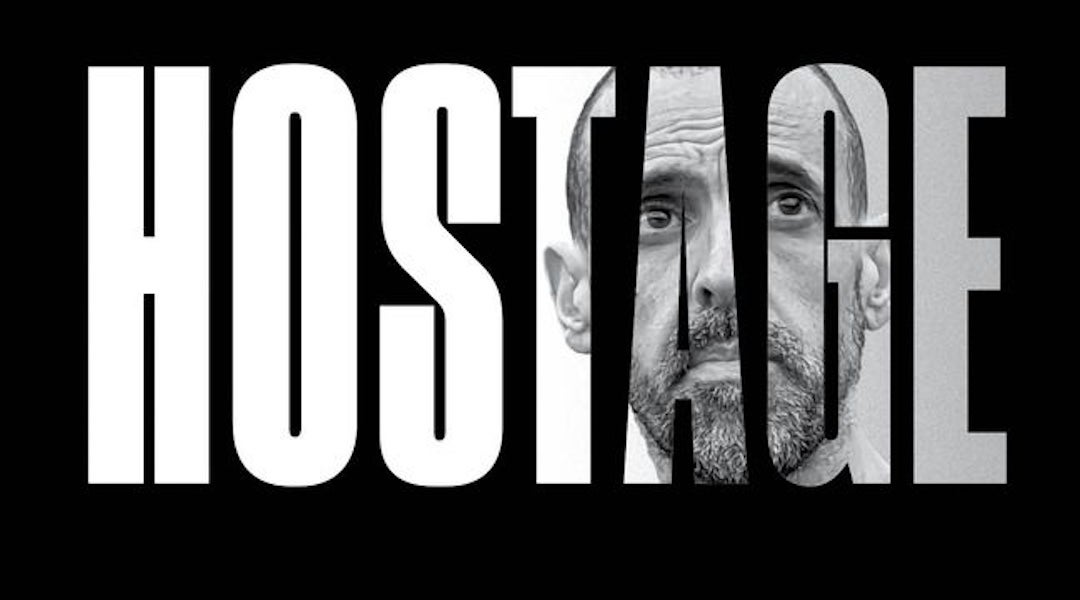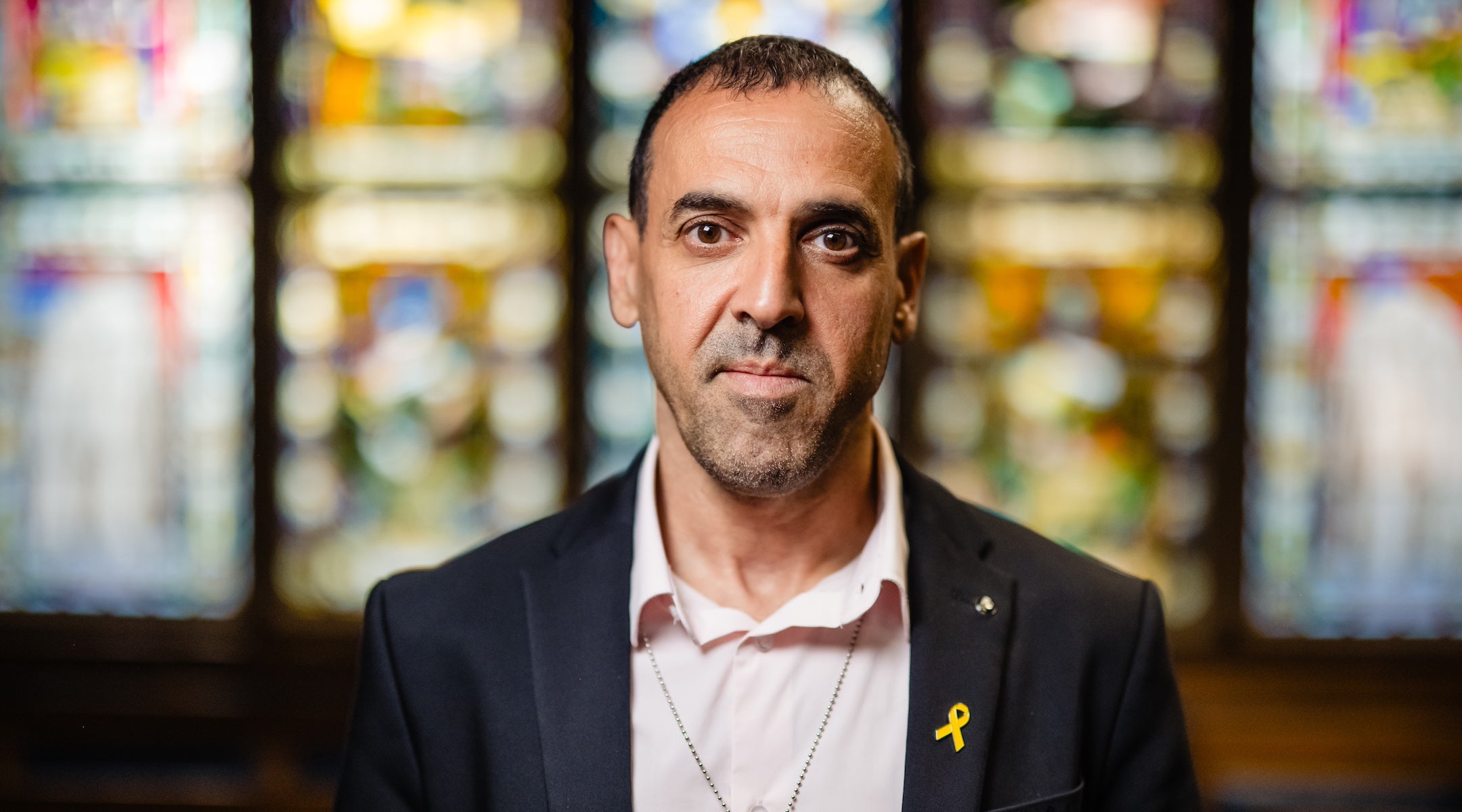In synagogue this past Yom Kippur, someone handed me a machzor with a bookplate that read: “Dedicated by [X] in memory of Rabba Sara Hurwitz and Josh Abraham on the birth of Natan.”
Thank God, my husband Josh and I are very much alive. Somehow “in honor of” was replaced by “in memory of.” But my son, Natan, has just turned 9 years old — so what better reminder could there be to pause and examine my life? To ask the big questions that Shmuel in the Gemara (Yoma 87b) insists that we ask in the waning hours of Yom Kippur during Neilah: Mah anu, what are we? Meh chayeinu, what are our lives?
These questions don’t end with Yom Kippur. They echo back to the very beginning of our story as a people, when God calls Avram in Genesis 12:2, to leave his home with the divine promise: “I will make your name great, and you shall be a blessing.” The structure of this verse, which will be read in most synagogues this Shabbat, is striking. God doesn’t say “I will bless you” (that comes in the previous verse). Here, God says something different: “You shall be a blessing.” Avrahram is not a passive recipient but an active agent. His very existence, his life itself, will be a source of blessing to others.
This is God’s answer to Shmuel’s questions: What are we? We are blessings. What are our lives? Our lives are meant to be a source of blessing to the world. How do we live lives that fulfill this divine mandate?
This year, I hold these questions alongside the words of Eli Sharabi, the first hostage to publish his account of captivity. To call his book “Hostage” merely an autobiography misses its essence. It is a sacred text about what it means to live in darkness and fear and still choose life, still choose to be a blessing.
In the tunnels of Gaza, stripped of everything, Eli was forced to answer Shmuel’s questions in the starkest terms imaginable: What am I? What is my life? You would expect the answer to be: I am nothing. My life is nothing. But instead, his answer reverberates with a fierce, almost defiant vitality: “I don’t want to survive just for them [his family]. I don’t want to live just for them. I want to live for myself too. For me, Eli Sharabi. I want to live. I love life. I crave it.”
If Eli, who lived for 491 days in constant hunger, dealing with the brutality of his captors, living in the filth of the tunnels, without knowing if his beloved family were alive or dead — if he can still crave life against all odds, then I too, even when I feel shrouded in darkness and fear will not take what I have for granted, and I will embrace life.
To be a blessing begins with recognizing the gift of simply being alive, of breathing freely, off walking down the street. When we crave life itself, we become capable of blessing others. Eli writes: “I want to breathe life, to walk free, to return to the open skies, to go back home, to work, to purpose…. To return to the roads, to driving, to walking down the street, to my simple regular worry-free day-to-day.”
Sadly, Eli was released to learn that his wife Lianne and daughters Noiya and Yahel were murdered on Oct. 7 and that his brother Yossi, too, had been abducted and then killed in captivity. This week, we watched as Eli and his family buried Yossi in Israel, at long last.

A detail of the cover of “Hostage,” Eli Sharabi’s memoir of his time in Hamas captivity. (Harper Influence)
Still, Eli’s testimony offers something even more profound about what it means to fulfill “and you shall be a blessing.” In absolute darkness, starving, and humiliated, he and his fellow hostages created a daily ritual to think of good things that happened to them each day and express gratitude — from sweet tea to a day without humiliation. In hell, they chose to find gratitude and see the tiny miniscule blessings in their lives. And in doing so, they became blessings to each other.
Hope was the hostages’ spiritual practice. Gratitude became resistance. Searching for good was an act of defiance against fear, and a way of being a blessing to those around them. In the tunnels of Gaza, Eli wasn’t just surviving, he was creating a practice of blessing. This is what God means when telling Avraham “and you shall be a blessing.” You don’t need to wait for perfect conditions. You don’t need to be free, comfortable, or secure.
As we move forward into a new year, Shmuel’s questions travel with me, now illuminated by God’s command to Avraham: Mah anu. What are we? We are called to be blessings. Like Eli, can we search for good even in difficulty? Can we be sources of hope and light for those around us, even when we ourselves are struggling?
Meh chayeinu. What are our lives? God tells Avraham that his life will be a blessing. What about ours? Do we only celebrate the extraordinary moments, or can we embrace the mundane — like walking down the street, breathing, being free to be at home with our loved ones? This is the wisdom of someone who faced death and chose, deliberately, consciously, to love life and to be a blessing, not despite the darkness, but in the darkness.
This year, I will hold Eli’s courage and search for good even when it’s hard to find. I will strive to make hope and gratitude a daily practice. I will try to fulfill “and you shall be a blessing” — to raise up those around me, in big ways and small.
JTA has documented Jewish history in real-time for over a century. Keep our journalism strong by joining us in supporting independent, award-winning reporting.






